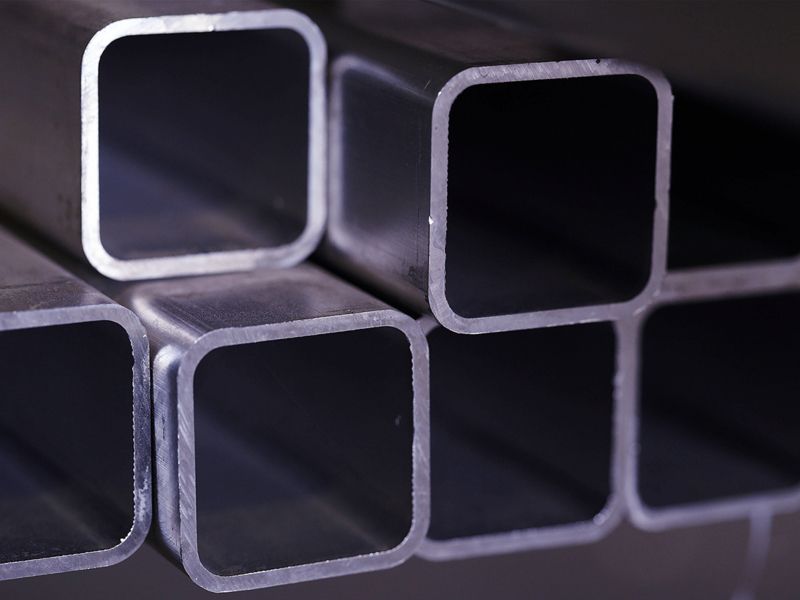
WASHINGTON — The Trump administration plans to reimpose tariffs on some Canadian aluminum imports, hitting a crucial trade partner just weeks after the president’s landmark North American trade agreement went into effect. Canada threatened retaliation.
President Donald Trump announced Thursday that he’s removing Canada’s exemption from 10 percent tariffs, effective Aug. 16. The decision comes more than a month after U.S. Trade Representative Robert Lighthizer expressed concern about recent struggles by American aluminum producers, who have said they are hurting from a “surge” of metal from Canada flowing into the U.S.
“Several months ago, my administration agreed to lift those tariffs in return for a promise from the Canadian government that its aluminum industry would not flood our country with exports and kill all our aluminum jobs, which is exactly what they did,” Trump said during a speech at a Whirlpool Corp. factory in Ohio. “Canadian aluminum producers have broken that commitment.”
“In response to the American tariffs, Canada intends to swiftly impose dollar-for-dollar countermeasures,” Deputy Prime Minister Chrystia Freeland said in a statement, calling the U.S tariffs “unwarranted and unacceptable.”
Canada said Friday it will slap retaliatory tariffs on $2.7 billion worth of U.S. aluminum products. Freeland told a news conference the countermeasures would be put in place by Sept. 16 to allow consultations with industry.
Trump made the announcement Thursday at a time when he’s behind Democrat Joe Biden in the polls and trying to portray himself as best positioned to revive the U.S. economy from a recession caused by the coronavirus — even as some economists have questioned the benefit to the U.S. of imposing tariffs.
“To be a strong nation, America must be a manufacturing nation and not be led by a bunch of fools — that means protecting our national industrial base. We have to protect our great companies and our great workers,” Trump said.
Earlier, Bloomberg News reported that the measures would be unveiled as soon as Thursday, causing shares of aluminum producers Alcoa Corp. and Century Aluminum Co. to surge as much as 5.6 percent and 6.1 percent respectively, and the price to ship aluminum to the U.S. Midwest climb as much as 21 percent.
The tariffs will drive up costs for end users such as automakers and suppliers.
Bill Long, CEO of the Motor & Equipment Manufacturers Association, in a statement on Thursday said the tariff will “place greater financial hardship on U.S. vehicle parts manufacturers at a time when the industry is trying to recover from plant shutdowns and a declining economy.
“MEMA has been a strong advocate and supporter of the Trump administration’s historic U.S.-Mexico-Canada Agreement (USMCA). We are disappointed with the tariff announcement, coming so soon after USMCA entered into force.”
Autos Drive America, which represents import automakers, said in a statement the auto industry is “making slow but steady progress toward recovery” amid the pandemic.
“New tariffs on aluminum imports from Canada will not aid in this recovery and are not justified on national security grounds. We urge the immediate reconsideration of these tariffs so the industry can continue to ramp up production, make the significant adjustments required by the U.S.-Mexico-Canada Agreement and continue to provide competitively priced vehicles to American consumers.”
That sentiment was echoed by the U.S. Chamber of Commerce.
“These tariffs will raise costs for American manufacturers, are opposed by most U.S. aluminum producers, and will draw retaliation against U.S. exports — just as they did before,” the group said in an emailed statement. “We urge the administration to reconsider this move.”
Raw Metal
The tariff will affect “non-alloyed unwrought aluminum articles from Canada, commensurate with the tariff imposed on such articles imported from most countries,” according to a proclamation from the White House. That raw material made up abut 73 percent of all Canadian aluminum imports — including value-added products — in the first half of the year, according to U.S. Census Bureau data.
“Tariffs were the wrong instrument when they were first imposed in 2018, and they remain the wrong instrument now,” the Canadian Chamber of Commerce said. “At a time when our economies are struggling with the economic fallout of Covid-19, these tariffs will only exacerbate disruptions to North American supply chains.”
Raising Costs
“Re-imposing tariffs only raises costs for U.S. consumers and businesses in the middle of economic recovery efforts,” the Aluminium Association of Canada said in a statement. “Since there is no surge in aluminium exports from Canada to the U.S., all options for retaliation should be considered by Canada.”
Alcoa, the biggest U.S. aluminum producer, which has some smelters in Canada, said in an emailed statement it was “disappointed” that the U.S. decided to reimpose the tariffs.
“We are working with our U.S. customers to minimize any negative impacts to the integrated supply of aluminium in North America,” a Rio Tinto Plc spokesperson said in an email, adding that the tariffs undermine “market confidence in secure supplies of aluminium in North America.”
The decision was applauded by Century, a producer that had supported tariffs.
“The president’s leadership helps to secure continued domestic production of this vital strategic material and level the playing field for thousands of American aluminum workers,” CEO Michael Bless said in an emailed statement.